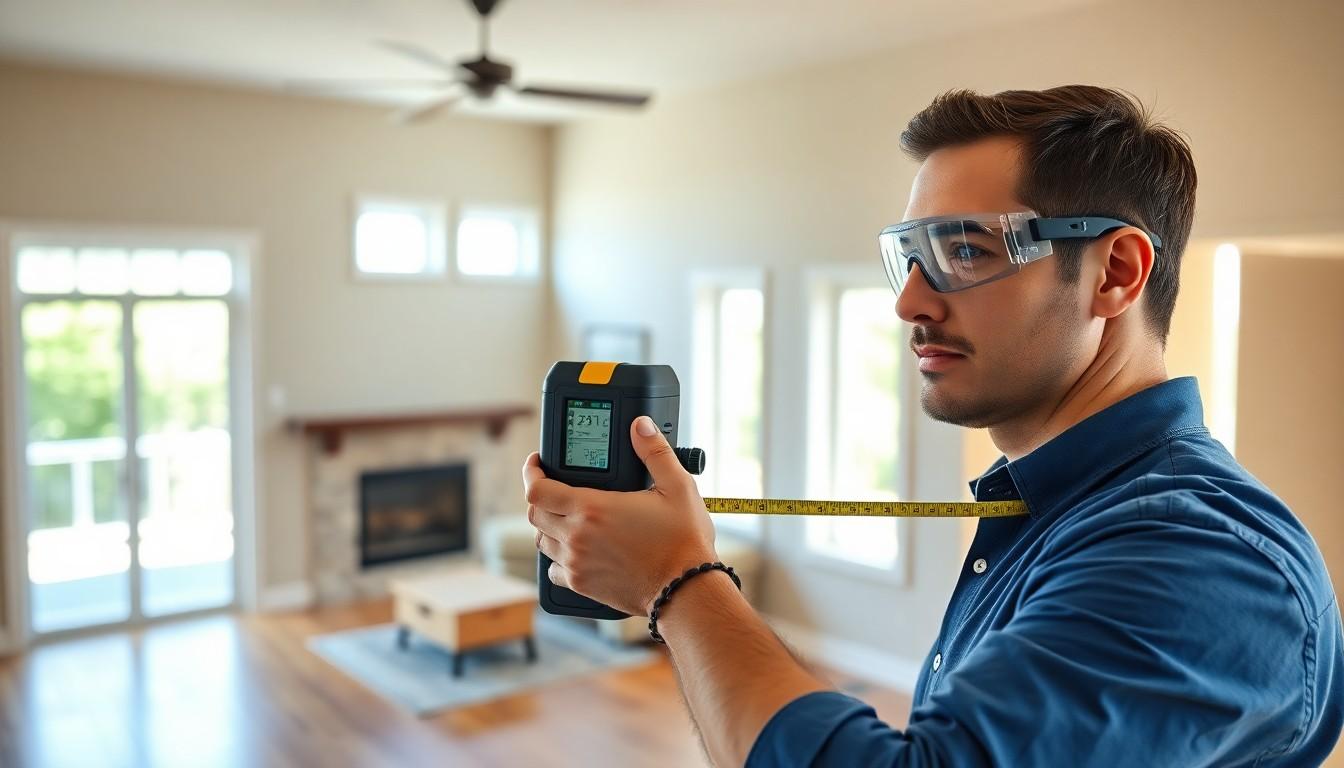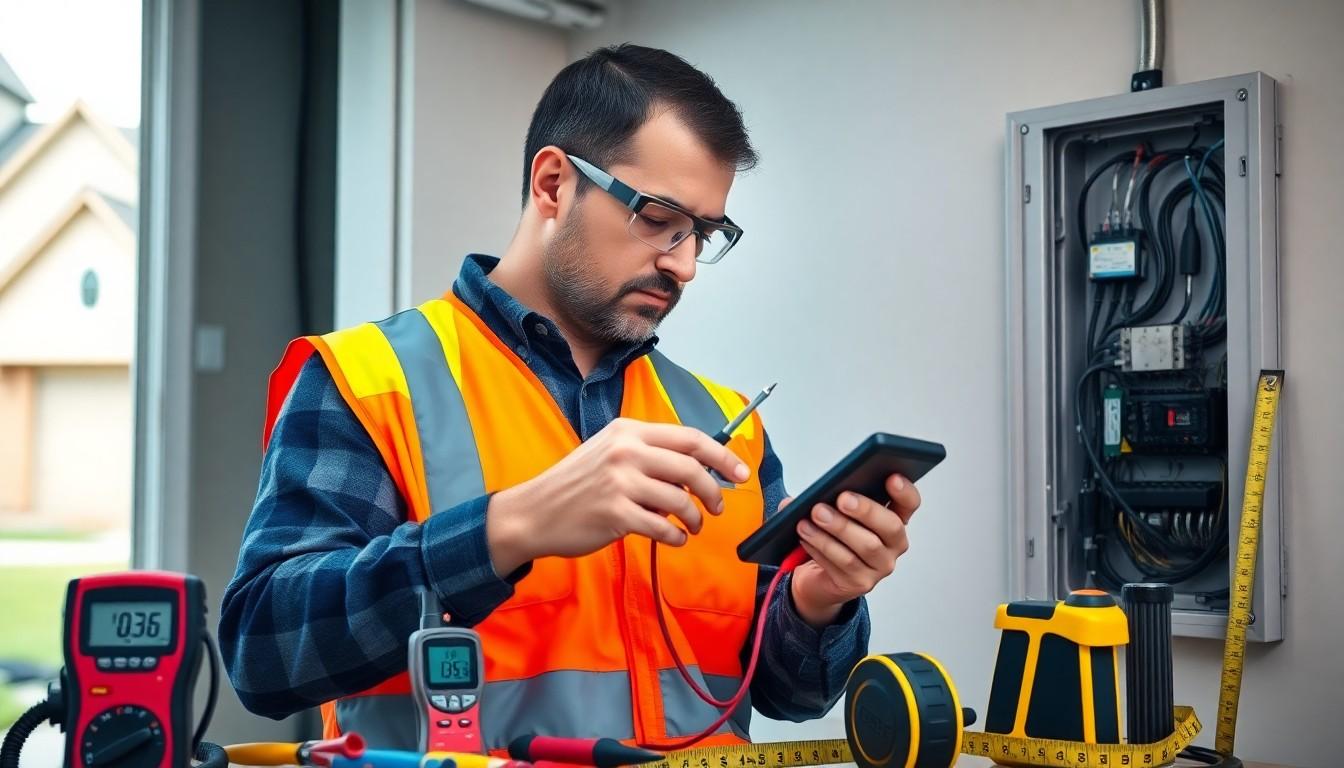When it comes to home inspections, having the right tools can make all the difference between a smooth process and a comedy of errors. Picture this: a home inspector armed with nothing but a flashlight and a questionable sense of humor. Not exactly the dream team for uncovering hidden issues. That’s why investing in the right home inspection tools is essential for anyone looking to ensure a property is up to snuff.
Table of Contents
ToggleOverview of Home Inspection Tools
Home inspection tools play a vital role in assessing a property’s condition. Quality equipment allows inspectors to identify potential issues that may not be visible to the untrained eye. Common tools include moisture meters, thermal imaging cameras, and electrical testers. Each of these tools serves a distinct purpose.
Moisture meters detect hidden water leaks and moisture levels in walls, floors, and other surfaces. Thermal imaging cameras offer a non-invasive way to reveal temperature differences, helping to spot insulation issues or electrical faults. Electrical testers ensure safety by checking the integrity of wiring and outlets.
Other essential tools include ladders, which help inspectors reach high areas like roofs or attics, and safety goggles that protect eyes during inspections. Tape measures assist in determining room dimensions and assessing the space layout. Flashlights provide crucial visibility in dark or confined areas.
It’s important to note that a well-equipped inspector not only completes their job more efficiently but also provides comprehensive reports that inform potential buyers. Investing in quality home inspection tools enhances the reliability of the inspection. Regular maintenance of the tools ensures longevity and consistent performance during evaluations.
Utilizing advanced technology can set an inspector apart from competitors, leading to increased client trust and satisfaction. In today’s market, being equipped with the right tools significantly enhances the value of home inspections.
Essential Home Inspection Tools

Having the right tools ensures an effective home inspection process. Quality equipment improves efficiency and helps uncover hidden property issues.
Measuring Tools
Measuring tools include tape measures and digital laser measurers. Tape measures help in obtaining room dimensions, ensuring accuracy during evaluations. Digital laser measurers offer quick measurements over long distances, maximizing efficiency. Both tools assist inspectors in verifying compliance with building standards. Proper measurements inform potential buyers and lead to better decision-making.
Diagnostic Tools
Diagnostic tools encompass moisture meters, thermal imaging cameras, and electrical testers. Moisture meters detect hidden leaks that may lead to mold growth or structural damage. Thermal imaging cameras identify temperature discrepancies, revealing insulation issues or electrical hot spots. Electrical testers ensure wiring meets safety standards, preventing hazards. Each diagnostic tool plays a crucial role in providing comprehensive inspection reports.
Technology in Home Inspections
Technology significantly enhances the home inspection process. Incorporating advanced tools improves accuracy and efficiency for inspectors.
Home Inspection Software
Home inspection software streamlines the inspection process. This software helps inspectors catalog findings and generate reports swiftly. Features such as customizable templates and mobile compatibility facilitate easier data collection and management. Some platforms even allow clients to access reports instantly, promoting transparency. Using inspection software promotes organization, reduces errors, and ultimately enhances client confidence.
Drones and 3D Scanners
Drones and 3D scanners offer unique perspectives during inspections. Drones efficiently capture aerial footage of roofs and hard-to-reach areas, revealing potential issues without requiring ladders. 3D scanners create precise digital models of properties, allowing for detailed assessments of layout and structure. Incorporating these technologies provides inspectors with comprehensive visual evidence, supporting findings. Utilizing drones and 3D scanners increases the thoroughness of inspections and elevates the level of service provided to clients.
Safety Equipment for Inspectors
Safety equipment plays a critical role in ensuring the well-being of home inspectors during their evaluations. Proper gear not only protects inspectors from injuries but also enhances the overall quality of inspections.
Personal Protective Gear
Personal protective gear includes essential items such as hard hats and safety gloves. Hard hats guard against falling debris, especially when inspecting attics or roofs. Safety gloves protect hands from sharp objects and hazardous materials. Inspectors often wear high-visibility vests, ensuring they remain visible during outdoor inspections, especially in busy areas. Safety goggles shield eyes from dust and harmful substances, preventing potential injuries. Steel-toed boots provide additional protection against heavy items, enhancing comfort and stability while navigating various surfaces throughout the property.
Safety Tools for Hazardous Situations
Safety tools for hazardous situations consist of various equipment designed to mitigate risks during inspections. A first aid kit is indispensable, providing immediate treatment for minor injuries or accidents. Inspectors carry fire extinguishers to address potential fire hazards, ensuring quick action could prevent disasters. Smoke detectors and carbon monoxide detectors allow inspectors to assess safety levels in homes, ensuring compliance with safety regulations. Additionally, respirators might be necessary in environments with mold or other airborne hazards. Utilizing these tools enables inspectors to navigate dangerous conditions confidently, thereby safeguarding themselves and their clients.
Investing in the right home inspection tools is essential for any inspector aiming to deliver thorough and reliable evaluations. Quality equipment not only enhances the efficiency of the inspection process but also builds trust with clients. From moisture meters to drones and advanced software, each tool plays a vital role in uncovering potential issues that could affect a property’s value and safety.
Prioritizing safety equipment further ensures that inspectors can navigate challenging environments without compromising their well-being. With the right tools and technology, inspectors can elevate their services and provide clients with the confidence they need when making significant investment decisions. The commitment to utilizing top-notch equipment ultimately leads to more informed buyers and successful inspections.




